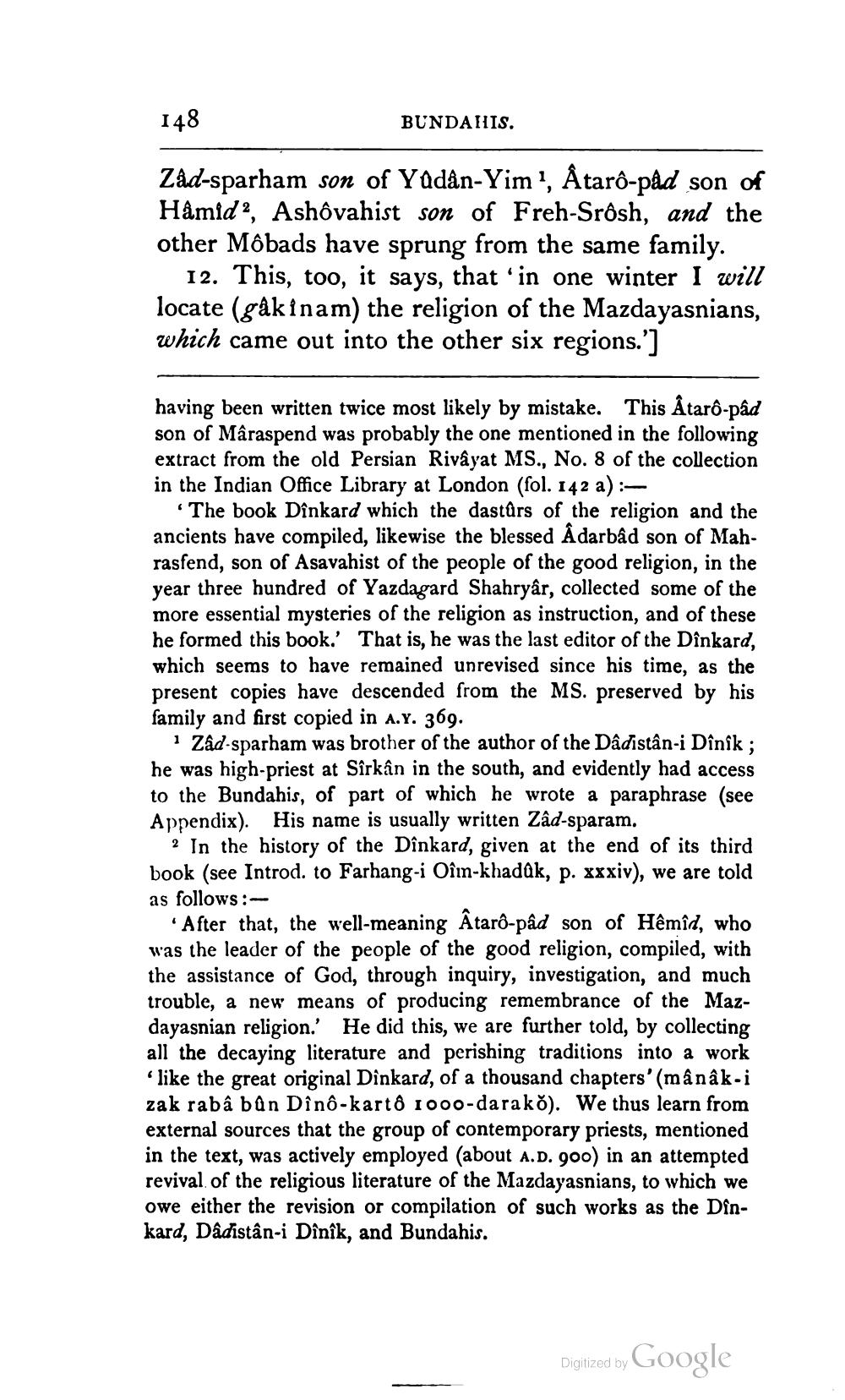________________
148
BUNDAHIS.
Zad-sparham son of Yadân-Yim, Åtarô-pad son of Hamid?, Ashôvahist son of Freh-Srôsh, and the other Möbads have sprung from the same family.
12. This, too, it says, that 'in one winter I will locate (gåkinam) the religion of the Mazdayasnians, which came out into the other six regions.']
having been written twice most likely by mistake. This Âtarô-pâd son of Mâraspend was probably the one mentioned in the following extract from the old Persian Rivayat MS., No. 8 of the collection in the Indian Office Library at London (fol. 142 a) :
"The book Dînkard which the dastûrs of the religion and the ancients have compiled, likewise the blessed Adarbâd son of Mahrasfend, son of Asavahist of the people of the good religion, in the year three hundred of Yazdagard Shahryar, collected some of the more essential mysteries of the religion as instruction, and of these he formed this book.' That is, he was the last editor of the Dînkard, which seems to have remained unrevised since his time, as the present copies have descended from the MS. preserved by his family and first copied in A.Y. 369.
i Zad-sparham was brother of the author of the Dâdistân-i Dînik; he was high-priest at Sîrkân in the south, and evidently had access to the Bundahis, of part of which he wrote a paraphrase (see Appendix). His name is usually written Zâd-sparam.
2 In the history of the Dînkard, given at the end of its third book (see Introd. to Farhang-i Oîin-khadak, p. xxxiv), we are told as follows:
After that, the well-meaning Âtarô-pâd son of Hêmîd, who was the leader of the people of the good religion, compiled, with the assistance of God, through inquiry, investigation, and much trouble, a new means of producing remembrance of the Mazdayasnian religion. He did this, we are further told, by collecting all the decaying literature and perishing traditions into a work
like the great original Dinkard, of a thousand chapters' (mânâk-i zak rabâ bûn Dîno-kartô 1000-darako). We thus learn from external sources that the group of contemporary priests, mentioned in the text, was actively employed (about A.D. 900) in an attempted revival of the religious literature of the Mazdayasnians, to which we owe either the revision or compilation of such works as the Dinkard, DÂdistan-i Dinik, and Bundahis.
Digitized by Google




